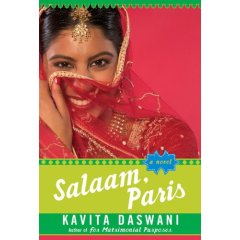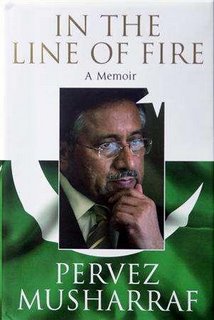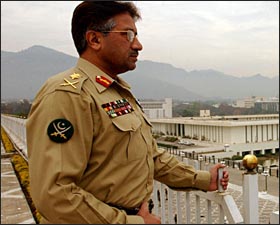OH BRING BACK THE DAPPER, THE DEBONAIR, THE DANDY....
....I said with a sigh at the first glance of the new Bond (Daniel Craig in Casino Royale, Dir. Martin Cambell). Needless to add, Craig has had a tough job given the high standards in style set by a long line of unique and suave predecessors. Playing a spy who's been endowed with a playboy-hunk persona (courtesy Sean Connery) and a impish smile and charming wink a la Roger Moore, not to mention the intermittent limpid pools as the eyes of Timothy Dalton and the flashes of domesticity as wedding bells for George Lazenby, is not easy as it were. But THEN there was Pierce Brosnan. In him, Bond climbed new heights. Ah! those were the days. Dandy and debonair, all he had to do to get dressed for dinner after chasing goons in an armored tank was to flick off that speck of imaginery dust from his impeccably tailored and ironed suit. That, and tighten the knot of his tie. Just a tad bit.
Playing a spy who's been endowed with a playboy-hunk persona (courtesy Sean Connery) and a impish smile and charming wink a la Roger Moore, not to mention the intermittent limpid pools as the eyes of Timothy Dalton and the flashes of domesticity as wedding bells for George Lazenby, is not easy as it were. But THEN there was Pierce Brosnan. In him, Bond climbed new heights. Ah! those were the days. Dandy and debonair, all he had to do to get dressed for dinner after chasing goons in an armored tank was to flick off that speck of imaginery dust from his impeccably tailored and ironed suit. That, and tighten the knot of his tie. Just a tad bit.
There is this scene in "The World is Not Enough" where after a huge hold up and staccato firing at a bankers', Brosnan saves himself in the nick of time by gliding down a multistoreyed building using a twine or rope (or something equally trivial) while bullets spray and glass shards rain around him. The touche one uttered was not at the escape but at the cool-as-a-cucumber demeanour, the cynical bending of mouth at his own triumph and at the gallant exit from scene while lightly touching his tie.
This chutzpah that was so typical of Bond is what I miss in our new avatar. Craig is just another spy. One of the hundreds of henchmen out there. He fights like a boxer, runs like a athlete and wears clothes like the next door neighbor. He even gets beat up like a common criminal. And he bleeds. As of all this were not enough, his shirt gets torn and dirty.
AND IF YOU DON'T SCREAM WHEN JAMES BOND'S SHIRT LOOKS YUCKY, DIRTY AND TORN (INSTEAD OF IRONED AND DELICIOUSLY SILKY) YOU WILL NEVER EVER SCREAM!!!!
Of course, if it's bye bye to stylish clothes and manners, can gizmos be left far behind. So they too disappear. No Q, no fancy shmancy cars or guns that fire like turrets upon request, no rings to break walls....in short no nothing.
The new Bond is also slow in the womanizing department. To top it all, he falls in "love". Now when was the last time Bond fell in love and wanted to settle down!
It was 1968, and no man had ever set foot on the moon, the Soviet Union was a rollicking success and 'Nam was a synonym for war.
Obviously we've moved since then, and Bond never falls for a woman. True he enjoys their company and they are an absolute necessity as accompaniments to his Dom Perignon '53. As absolute as the shaker for his vodka martini is. That is until now.
Until 2006 and Casino Royale. Sore disappointment awaits anyone who was looking forward to any familiar "Bond" moment. Not even the moment when the new Bond would announce his preference for all matter shaken but not stirred. No, that last bit of succor is also taken away. At that opportune moment when the bartender asks Bond whether he would like his martini shaken or stirred, our newbie says, "Does it look like a give a damn?"
But I do give a damn. If Bond is a common fighter, a common spy, a common man in love, in pain, hurting, falling, failing, pray why!, why then should he be special, or different. Why then should one go to see a Bond movie? One could just as well see Stallone, Schwarzneggar and/or their many wannabes and the hordes and hordes of Hollywood hunks that fight in the name of justice, cry over lost loves, and hurt and bleed till kingdom come.
Dear Martin Campbell, tweaking with Bond is a grave sin. And that has been committed. The one and only redemption lies in bringing the old geezer back. That uber stylish, metrosexual, dapper ladies man who needs only to give a soft tug at his tie to tug hard at women's heartstrings!!!!
....I said with a sigh at the first glance of the new Bond (Daniel Craig in Casino Royale, Dir. Martin Cambell). Needless to add, Craig has had a tough job given the high standards in style set by a long line of unique and suave predecessors.
 Playing a spy who's been endowed with a playboy-hunk persona (courtesy Sean Connery) and a impish smile and charming wink a la Roger Moore, not to mention the intermittent limpid pools as the eyes of Timothy Dalton and the flashes of domesticity as wedding bells for George Lazenby, is not easy as it were. But THEN there was Pierce Brosnan. In him, Bond climbed new heights. Ah! those were the days. Dandy and debonair, all he had to do to get dressed for dinner after chasing goons in an armored tank was to flick off that speck of imaginery dust from his impeccably tailored and ironed suit. That, and tighten the knot of his tie. Just a tad bit.
Playing a spy who's been endowed with a playboy-hunk persona (courtesy Sean Connery) and a impish smile and charming wink a la Roger Moore, not to mention the intermittent limpid pools as the eyes of Timothy Dalton and the flashes of domesticity as wedding bells for George Lazenby, is not easy as it were. But THEN there was Pierce Brosnan. In him, Bond climbed new heights. Ah! those were the days. Dandy and debonair, all he had to do to get dressed for dinner after chasing goons in an armored tank was to flick off that speck of imaginery dust from his impeccably tailored and ironed suit. That, and tighten the knot of his tie. Just a tad bit. There is this scene in "The World is Not Enough" where after a huge hold up and staccato firing at a bankers', Brosnan saves himself in the nick of time by gliding down a multistoreyed building using a twine or rope (or something equally trivial) while bullets spray and glass shards rain around him. The touche one uttered was not at the escape but at the cool-as-a-cucumber demeanour, the cynical bending of mouth at his own triumph and at the gallant exit from scene while lightly touching his tie.
This chutzpah that was so typical of Bond is what I miss in our new avatar. Craig is just another spy. One of the hundreds of henchmen out there. He fights like a boxer, runs like a athlete and wears clothes like the next door neighbor. He even gets beat up like a common criminal. And he bleeds. As of all this were not enough, his shirt gets torn and dirty.
AND IF YOU DON'T SCREAM WHEN JAMES BOND'S SHIRT LOOKS YUCKY, DIRTY AND TORN (INSTEAD OF IRONED AND DELICIOUSLY SILKY) YOU WILL NEVER EVER SCREAM!!!!
Of course, if it's bye bye to stylish clothes and manners, can gizmos be left far behind. So they too disappear. No Q, no fancy shmancy cars or guns that fire like turrets upon request, no rings to break walls....in short no nothing.
The new Bond is also slow in the womanizing department. To top it all, he falls in "love". Now when was the last time Bond fell in love and wanted to settle down!
It was 1968, and no man had ever set foot on the moon, the Soviet Union was a rollicking success and 'Nam was a synonym for war.
Obviously we've moved since then, and Bond never falls for a woman. True he enjoys their company and they are an absolute necessity as accompaniments to his Dom Perignon '53. As absolute as the shaker for his vodka martini is. That is until now.
Until 2006 and Casino Royale. Sore disappointment awaits anyone who was looking forward to any familiar "Bond" moment. Not even the moment when the new Bond would announce his preference for all matter shaken but not stirred. No, that last bit of succor is also taken away. At that opportune moment when the bartender asks Bond whether he would like his martini shaken or stirred, our newbie says, "Does it look like a give a damn?"
But I do give a damn. If Bond is a common fighter, a common spy, a common man in love, in pain, hurting, falling, failing, pray why!, why then should he be special, or different. Why then should one go to see a Bond movie? One could just as well see Stallone, Schwarzneggar and/or their many wannabes and the hordes and hordes of Hollywood hunks that fight in the name of justice, cry over lost loves, and hurt and bleed till kingdom come.
Dear Martin Campbell, tweaking with Bond is a grave sin. And that has been committed. The one and only redemption lies in bringing the old geezer back. That uber stylish, metrosexual, dapper ladies man who needs only to give a soft tug at his tie to tug hard at women's heartstrings!!!!






